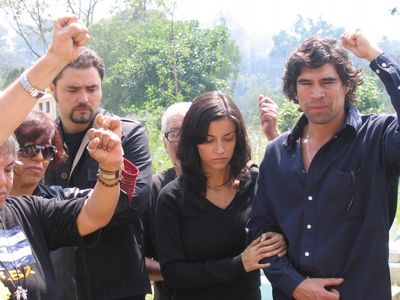México. "MataSari" libro denuncia contra Sari Bermúdez, dueña del Consejo Nacional para la Cultura y las Artes. Autora Gloria López Morales
MATASARI: TRIBULACIONES DE LA CULTURA EN EL SEXENIO DE FOX
Autor: GLORIA LOPEZ MORALES
Editorial:
GRIJALBO
Sección:
Política
ISBN:
9685964459
Es más que un repaso por cada uno de los dislates cometIdos cor el gobierno federal en este terreno, sino que la denuncia es el marco general para el testimonio de quien desde la Coordinación de Patrimo- nio Cultural yTurismo fue objeto del desdén, las vejaciones y la ignoran- cia de Sari Bermúdez, presidenta del Consejo Nacional para la Cultura y las Artes.
------------
:: PROCESO : CULTURA
López Morales. Recuento
foto: francisco daniel
"MataSari", libro-denuncia contra Sari Bermúdez
Columba Vértiz
Proceso
Gloria López Morales, exfuncionaria de la UNESCO y del Conaculta que dirige Bermúdez, dio a conocer el año pasado en este semanario las causas que produjeron su despido de ese organismo, entre ellas su oposición al tráfico de influencias. Ahora detalla el caso en el libro MataSari. Tribulaciones de la cultura en el sexenio de Fox, con prólogo de Miguel Ángel Granados Chapa, donde señala que “no hubo política cultural con Sari Bermúdez”, y de paso cuestiona a los intelectuales por su letargo al dejarse cooptar por los estímulos económicos. El tráfico de influencias también se dio en el campo cultural durante este sexenio y “dejó a dicho sistema desmantelado”, según Gloria López Morales, invitada por Sari Bermúdez, titular del Consejo Nacional para la Cultura y la Artes (Conaculta), para ocuparse de la Coordinación de Patrimonio Cultural y Turismo.Por ello, la exfuncionaria de la Organi-zación de las Naciones Unidas para la Educación, la Ciencia y la Cultura (UNES-CO), en la que trabajó 34 años, ha escrito el libro MataSari. Tribulaciones de la cultura en el sexenio de Fox, con prólogo de Miguel Ángel Granados Chapa, que lanzará Grijalbo al mercado este septiembre, como ya se anuncia en el boletín de novedades de esa casa editora.López Morales empezó su libro (200 páginas, 189 pesos) luego de su salida del Conaculta (a finales de 2005), donde fue “objeto del desdén, las vejaciones y la ignorancia de Sari Bermúdez” a través de un caso de espionaje “del cual fui víctima, no nada más yo, sino toda la coordinación nacional que dirigía” (Proceso, 1532).Al instante, entrevistada en su casa de San Ángel, aclara que el libro cumple varios objetivos:“Doy a conocer la anécdota que desencadenó mi salida después de cerca de cinco años de trabajo en el Conaculta. Un recomendado y protegido de la señora Bermúdez me fue impuesto de manera tajante y sin posibilidad de réplica, se llama Fernando León Olea, quien no realizaba tarea alguna con respecto al departamento porque no sabía hacer nada, pero pensó que las oficinas las podía usar para sus fines personales. Cuando le dije que no podía usarlas como departamentos de prensa de su hermano el diputado Santiago León Olea y de su sobrino que trabaja en la Pre-sidencia, Bernardo León Olea, él me amenazó con que acabaría conmigo. Yo no le di importancia. Pero, efectivamente, él empezó a usar sus métodos.”Denuncia que la grabó durante varios meses, no sólo a ella, sino a 21 personas de esa coordinación y de otras áreas de Conaculta:“Con esas grabaciones empezó a chantajearme y a amenazarme. Él dice que yo tuve alguna expresión desenfadada hacia el propio presidente Vicente Fox. De repente las grabaciones ya estaban en la mesa de Sari Bermúdez y ella dijo, me cuentan, también en la mesa del propio Ramón Muñoz, en la Presidencia de la República. Desde allí le dieron instrucciones de que yo no podía seguir, de manera más directa, que me corriera. Los detalles prefiero que los lean en el libro. Son muy ricos en enseñanzas para que se vean los mecanismos del poder, el tráfico de influencias, y el estilo con el que se manejaron las cuestiones en varios niveles, pero sobre todo del Conaculta.“Yo nunca pude defenderme ni argumentar porque la señora Bermúdez sencillamente me mandó la sentencia de muerte y nunca me quiso escuchar. Por fortuna soy una veterana funcionaria y tenía todo perfectamente documentado. Levanté actas, hice mis quejas correspondientes.”–¿Por qué surge la idea de hacer el libro?–Cuando ya no me interesaba defenderme, empecé a retomar en otros términos la situación. Es muy sabroso que la gente se entere de este chisme, pero lo que más me interesa es que la gente me acompañe a reflexionar sobre esos mecanismos absolutamente perversos del poder tal como se ejerció: todo como cuestiones de una corte corrupta a la que lo único que le interesa es defender sus intereses más cercanos, los de su grupo. Y muy bien sabido es, porque abundan en este período los testimonios sobre cómo Marta Sahagún protegió a la señora Bermúdez. Cómo los recomendados tenían mil veces más credibilidad y peso que los antiguos y los fieles servidores públicos que pasan por esas dependencias.Resalta que en el volumen incluye pruebas del trafico de influencias “con muchos detalles que muestrean que los recomendados en el sistema son intocables y que prefieren pasar por la guillotina a mil inocentes con tal de no tocarle ni un pelo a un recomendado de Los Pinos, por lo pronto esa es la experiencia que vivimos ahí”.–¿Qué otra consideración la llevó a escribir el texto?–La urgencia de reflexionar sobre la política cultural. La política cultural, vista en toda su dimensión histórica y como una herencia y un valiosísimo patrimonio que la señora Bermúdez recibió en sus manos y que pudo haber enriquecido, la deja, sin embargo, empobrecida. La deja realmente en harapos. Esa es la verdad. Me interesó ver el antes y el después, y articular toda esa reflexión con todo lo que fue mi experiencia personal.El pasado y el presente–¿A qué conclusiones llegó?–Mi intento de reflexión me llevó primero a ¿qué había recibido la señora Bermú-dez? Y la señora recibió una constelación de instituciones y de acciones muy importantes que se habían venido consolidando y cohesionando a lo largo de muchos años. Me remonto un poco a la época de José Vasconcelos, de Alfonso Reyes, cuando el país entra a una estabilidad posrevolucionaria y empieza a emerger el agente cultural como un factor decisivo en la conformación de la nueva nación.“De manera que en todos los gobiernos del PRI, los 70 años de gobierno del PRI, sí hubo un área que respetaron y que fueron enriqueciendo, no como partido, pero propiciaron el clima para que ahí se diera un debate muy fructífero con grandes intelectuales que se ocuparon en la cultura, que colaboraron con los gobiernos en un área en la que, ciertamente, podían aportar muchísimo. Hasta llegar a la constitución misma del Conaculta, que no es ninguna institución ejemplar pero sí representa un intento, un paso más para la institucionalización de lo que se puede institucionalizar en la cultura. Es decir, institucionalizar aquellos aspectos y tareas a las cuales el Estado no puede renunciar en su labor de gobierno.”Luego arremete:“Cuando llega esta señora sin ningún atributo, sin ninguna formación, sin ninguna cualidad para poder seguir enriqueciendo esa área tan importante y conducir las reformas o promover las reformas necesarias para que esa consolidación se diera verdaderamente a favor del país y de la cultura, pues hace todo lo contrario. Además, participa en un régimen al que todo le interesa, menos el reforzamiento del Estado. En esa lógica, el área de cultura, el Conaculta, sus diferentes instituciones conexas y su dimensión general, no son vistas por ella más que como un asunto de su corral personal que se asocia con el corral de Los Pinos. Así lo veo.”–¿En el libro da ejemplos de sucesos culturales polémicos?–Sí. Es otro análisis. Coincido con muchos analistas, porque en realidad no he visto ningún trabajo crítico que ensalce ninguna de las acciones que emprendió la presidenta del Conaculta. Obviamente, la señora vio la necesidad, a pesar de todo el deterioro del sistema cultural, de trascender con alguna acción importante. Buscó qué hacer para que ella y por supuesto el presidente Vicente Fox pasaran a la historia. Quiero decir que las dos cosas que la señora se propuso, la megabiblioteca José Vasconcelos y su iniciativa famosa de ley cultural, fueron dos puntadas que se le ocurrieron.“En las acciones que se emprendieron desde la presidencia del Conaculta, nunca se tomó en cuenta a la comunidad cultural ni a los demás poderes del gobierno, de manera que por eso le llamo una puntada a su iniciativa de ley. Ella sola, con un bufete privado, se lanza a elaborar ese texto que era una verdadera ofensa a toda esa comunidad y las instituciones prestigiosas que se veían afectadas.”–Personas de la comunidad cultural se quejan de que no hubo un proyecto cultural y no hicieron nada, ¿qué opina?–El libro parte de esa base, de que no hubo política cultural, que las acciones fue-ron erráticas y la mayoría de ellas equivocadas. Que dejó al sistema desmantelado, que los asuntos de la federación los descuidó de una manera oprobiosa. No sé por qué actuaron o no los intelectuales, regresé a México después de muchos años de ausencia por mi trabajo en la UNESCO. La comunidad cultural del país está ante la gran obligación de profundizar sobre estas cuestiones, porque si en otros campos las cuentas del sexenio pueden ser desastrosas, en éste han sido realmente una tragedia. Viene un nuevo gobierno, no sabemos de qué color, pero cualquiera que sea el partido que lo encabece debe tomar más en serio las cuestiones de la cultura.–¿Qué área considera que fue la más perjudicada?–Definitivamente, por su renombre y su función vital para este país, el Instituto Nacional de Antropología e Historia (INAH).El INAH representa para este país la salvaguarda indispensable de su patrimonio histórico monumental y natural que es, óigaseme bien, mil veces más importante que el petróleo. El petróleo ya se está acabando. El patrimonio cultural puede con buenas políticas pervivir a lo largo del tiempo. En América Latina y en muchos otros países del mundo, al INAH se le ve como la institución maestra, como la institución guía.“Ahora el INAH se me figura como un queso gruyere. Esta señora le ha ido haciendo hoyos desde la arbitrariedad con la que han despedido a sus grandes expertos, todos andan afuera o del país o de esa institución. Además, el INAH también se ha quedado en los huesos presupuestalmente para que la presidencia del Conaculta hiciera sus proyectos de prestigio.”Preocupada, dice que se debe analizar qué ha sucedido en la parte cultural, “que no es irrelevante, es muy importante”.Desde que llegó al Conaculta notó que no había políticas que estimularan a los creadores, “ya sabemos lo que existe, pero lo que hay no basta para nada; al contrario, muchas veces acalla a las voces críticas”.Alza la voz:“Faltó una verdadera política de estímulo al mundo cultural, que no se dio. No podemos seguir así adelante después de este desastre. Hay que volver a planear para poder hacer algo. Los intelectuales, la gente del mundo cultural está un poquito aletargada.” ?
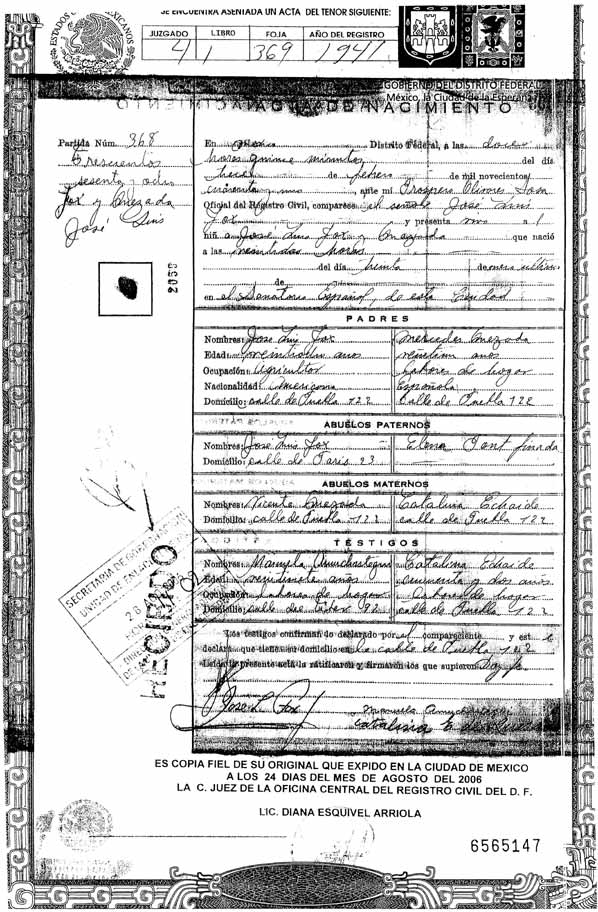




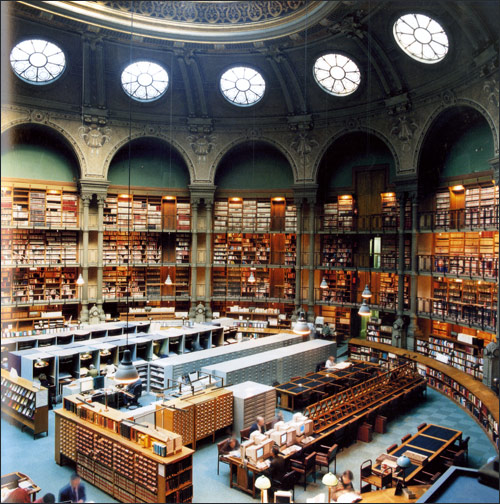
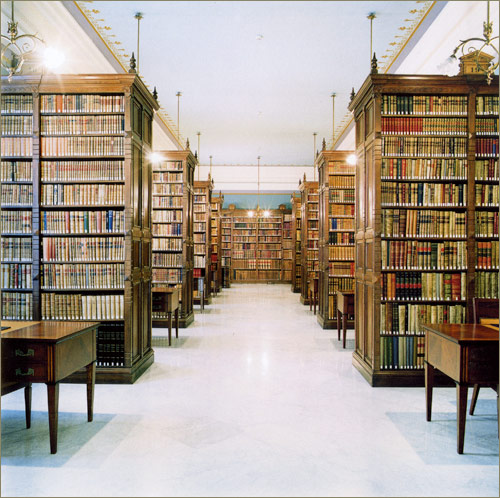

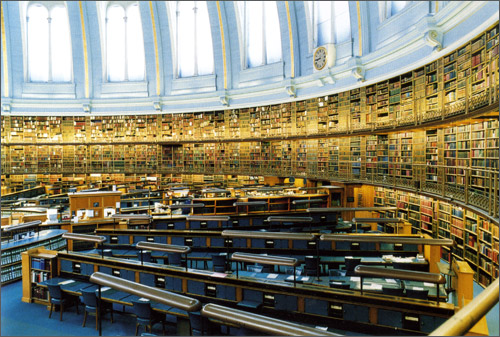
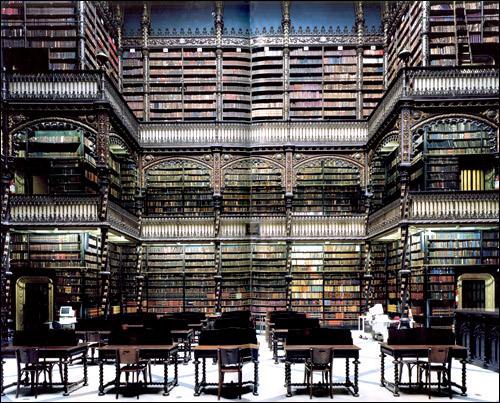

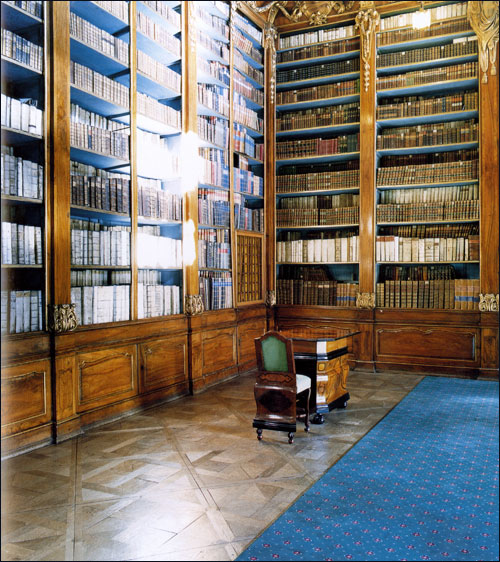



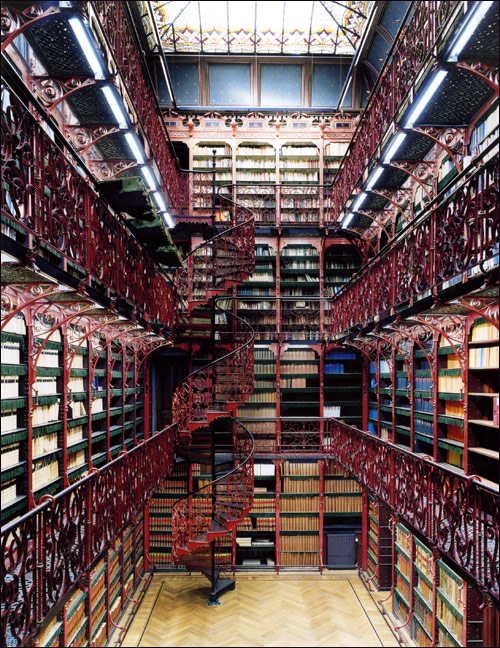
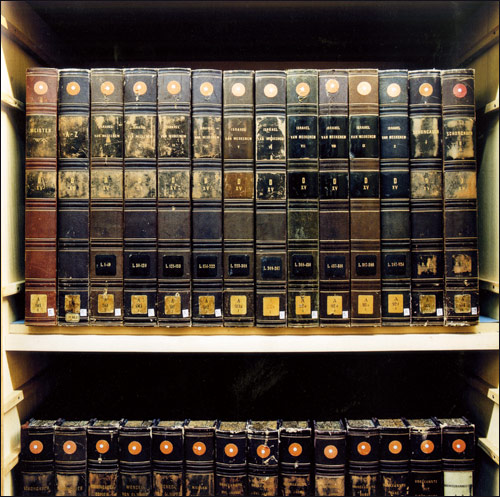
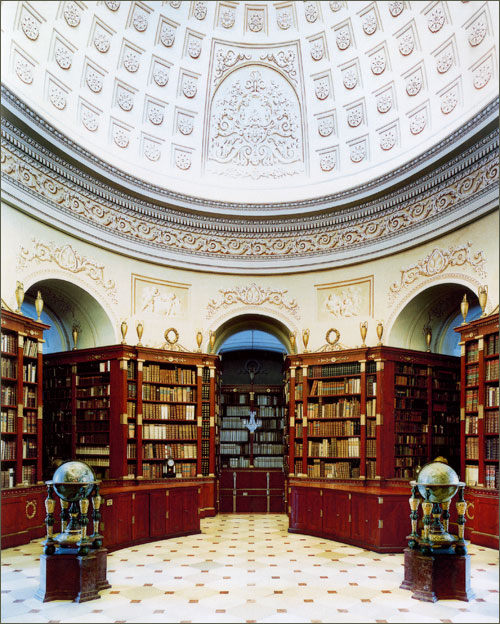




 Enviar
Enviar Imprimir
Imprimir

